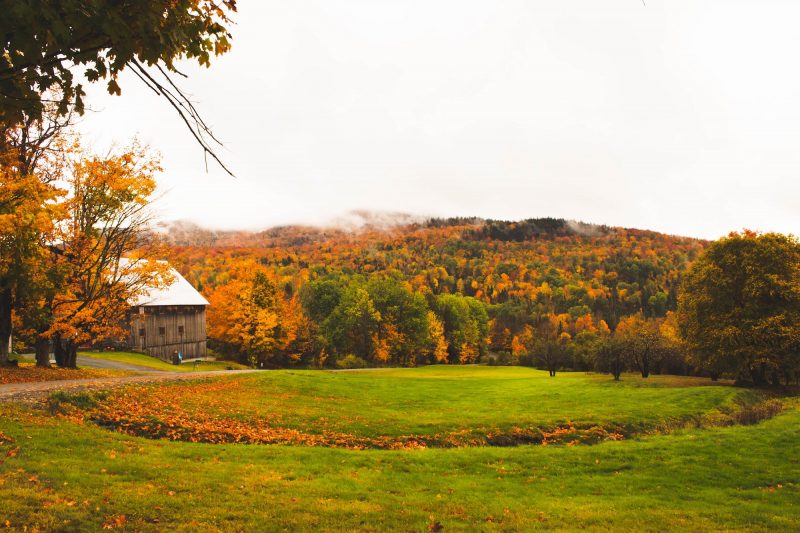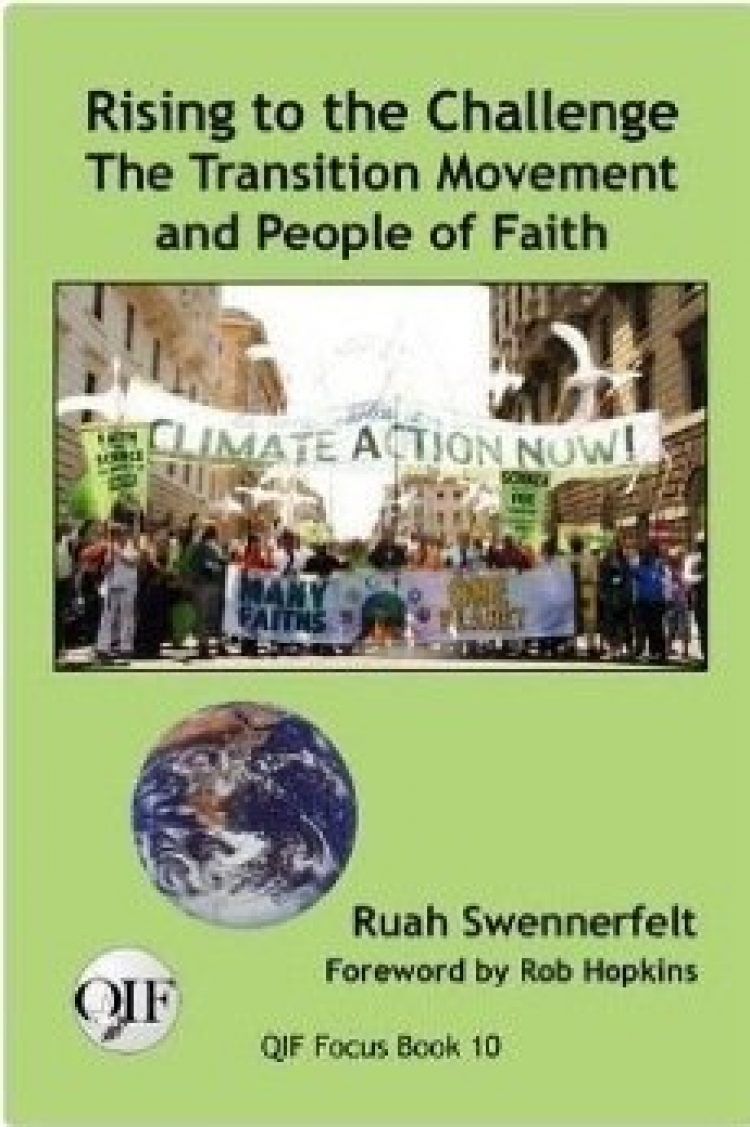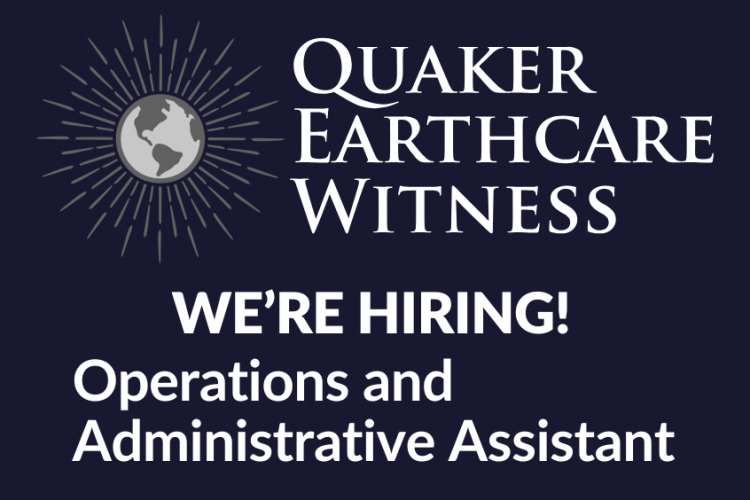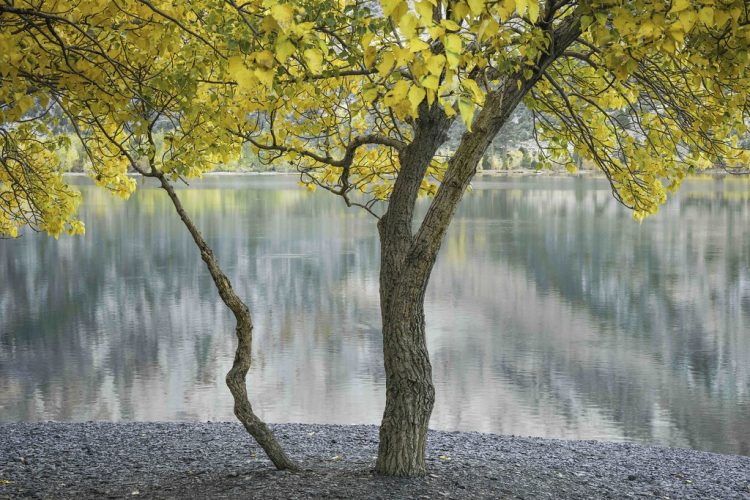Rising to the Challenge: The Transition Movement and People of Faith

Transitioning Times: An Interview with Ruah Swennerfelt
Ruah Swennerfelt, QEW’s former General Secretary, has just published a new book with Quaker Institute for the Future, entitled, Rising to the Challenge: The Transition Movement and People of Faith (QIF Focus Books, 2016). As part of the research for her book, she traveled to a number of Transition communities in various parts of the world and came back with some fascinating and hopeful stories. Recently Ruah participated in a Q&A interview with us to share some of the backstory and vision for her book.
1. Your book does a great job of introducing readers to the Transition movement and showing how it arises organically from the needs and gifts of different groups in different regions. I found myself wondering whether folks who are part of Transition groups tend to live in the same small community (or shared communal space) or whether they come together around this vision but live in different areas. Do you have a sense of that?
RS: I think for a Transition Initiative to be successful, people need to live in close proximity to one another. Otherwise folks are having to drive large distances to have the intimate experience of eating, laughing, and planning together. I see some of this same problem in our religious communities today. Long ago the church was the central hub of the community and everyone knew one another and could be there for each other in times of need. Today in our Friends’ Meetings we are often so scattered that it’s hard even to get people to come to a mid-week worship or to a mid-week event. The Meeting is no longer so central to our lives. We have many outside activities that feed our need for community.
On the other hand, the brilliance of the Transition Movement has been the evolving hub movement. We can have a Transition Town, Neighborhood, or even Street, and then connect to the wider Movement through hubs. I’m part of a New England Hub, New England Resilience and Transition (NERT), which hosts regional events, conference calls, and has an active online regular connection with one another, where we get inspired by other folks’ successes.
2. Was your perspective challenged or deepened by any of the Transition towns you visited?
RS: Transition communities are large and small and some have been going for a good number of years and others formed more recently. I was really drawn to the work of small Transition Communities, which often don’t have the resources and support that the larger, well-connected ones have. Transition Turvuren, Belgium had a small number of active, involved, and hopeful people. They were well informed of their challenges, locally and nationally. They had a strong sense of commitment to the purposes of the Transition Movement. My host organized a “Transition Cafe” where people come together to share ideas and plan projects. It was an honor to be part of that discussion and I saw the value of hosting such events regularly in communities. Maybe small groups in homes, with a themed discussion. It builds intimacy.
Another community that was inspiring was in Kinsale, Ireland. Really that’s the community that inspired the whole movement because Rob Hopkins was a permaculture teacher there and he began see how the ethics and principles of permaculture could inspire and guide communities, not just agriculture. He was British and returned to England, but the people who had learned from him were excited when they heard that Rob and others in Totnes, England began a Transition Totnes experiment. The Kinsale folks were quick to pick up on those beginnings and began Transition Kinsale. Though small in number, in five or six years they had completed a number of exciting projects and continued to be enthusiastic and loyal.
3. How have Quakers been responding to the Transition movement?
RS: There are a number of Quakers who are part of Transition Initiatives. The numbers aren’t overwhelming, but at the recent FGC Gathering in Minnesota, I met people in my workshop and others there who were involved. I think it’s such a great match, since the ethics —People Care, Earth Care, Fair Share—fit right in with Friends Testimonies and fit so well with all the major religions of the world. As well, they fit in with those who consider themselves non-theists or atheists. It’s an invitation to everyone to come to the table. That’s what inspired me to write the book. It was an opportunity to introduce people of faith to Transitioners and vice versa.
4. How do you feel spirit leading you personally in this work?
RS: I’ve worked for many decades on the issues of peace, justice, and Earthcare and in the early years tried to show how our care of the earth was intimately related to peace and justice issues. We certainly see now how climate change has created droughts and floods and climate chaos, which has led to resource wars and the overwhelming rise in refugees. As a Friend I feel compelled to work for a peaceful and healthy world. Spirit constantly nudges me forward when I’m tired or discouraged. And Spirit shows up in all those marvelous people working so hard for the same goals. Then I feel hope in the face of disaster. And that hope is the spirit working in me.
5. What is the vision you have for the book? Where will it go and what will it do?
RS: Obviously I’m hoping that people will read the book, share it with others, and possibly be inspired to join or start a Transition Initiative. But at least I hope the readers are inspired to become more connected with their neighbors and form loving and caring communities of resilience. I hope I’m invited to share what I’ve learned with Quakers and to multi-faith audiences. Two different book tours are in the making right now. One in the northeast and one in the southeast. I’ll make myself available wherever I go.
6. What obstacles do you think the Transition movement faces overall?
RS: This is an interesting question. If you look at the successes of the Transition Initiatives in Europe and then the slow growth of the movement in the U.S., you might wonder why. My theory is that Europeans grow up with a sense of the common good. I learn much of this from my Swedish cousins (I was born in Stockholm). I see how they care about universal access to healthcare, tuition-free higher education, good public transportation; they try to use less, and they care about their climate and environmental footprints. When there is already that sense of the importance of the common good, it’s much easier to bring people together to act for that common good. We in the U.S. are inspired to be individuals. We learn to care about ourselves above all other issues. It’s a big hurdle to jump over. But all of us who have been inspired by our faith can bring that sense of the common good to our community. And there still are plenty of people without a faith community who are ready and willing to do the work. We just have to find each other.
7. Do you know whether there have been any studies done (like the “Blue Zones” research) that shows the social/health/environmental benefit of being part of a Transition group? (I think this would be a fascinating study.)
RS: You know, it would be a fascinating study, but I don’t know that it’s been done. I do know that when I meet with other Transitioners, we share that sense of hope and psychological health.
8. It sounds as though the Transition movement has been growing since its inception. If you project into the future, what do you see for Transition in 2020? 2030?
RS: I think its growth has slowed down since it began. Maybe my book will help new initiative get started? There are trainers from Transition US who are ready and willing to do the weekend training to help begin an Initiative. It’s called a “Transition Launch Training.” Two excellent resources are www.transitionus.org and www.transitionnetwork.org. One can learn what is happening all around the world and here in the US.
=================
Ruah Swennerfelt, former General Secretary of QEW and author of Rising to the Challenge: The Transition Movement and People of Faith, is a member of Burlington, Vermont Monthly Meeting. She is on the board of Transition Town Charlotte and Vermont Interfaith Power and Light and serves as co-clerk of Ministry and Counsel in her Monthly Meeting a clerk of the New England Earthcare Ministry Committee.
Book Review: Rising to the Challenge
By Katherine Murray
Above all, Ruah Swennerfelt’s book, Rising to the Challenge: The Transition Movement and People of Faith, is a hopeful book.
Filled with stories of people who feel moved to take action toward right relationship with nature, the book offers readers a close, engaging look at the unique nature of thriving Transition groups all over the world and makes the case for people of faith to let conscience and spirit lead them toward practices in support of the common good.
With uplifting prayers and poems from a rainbow of traditions, Ruah frames her introduction to the Transition movement with practical information about the movement’s unfolding history and its foundational ideas, key personalities, and trajectory toward growth.

Her own story demonstrates how her inner stirring toward action led her through protest and engagement toward ideas that bring about the blossoming of a collaborative Transition community. In one of my favorite chapters, Ruah gives readers snapshots of various Transition groups in different countries, sharing their challenges, their unique approaches, and ideas that help us understand how the Transition approach arises out of the unique needs and assets in individual landscapes and communities. The group we feel led to create will be uniquely ours, but it will share the common ideas and values at the heart of the Transition approach.
Along the way, there are resources available to help. In addition to writing her book, Ruah and Friend Steve Chase have developed Quakers in Transition (http://quakersintransition.wordpress.com), a blog that is an online project of the New England Yearly Meeting Earthcare Ministries Committee, where Friends can learn more about the Transition movement, find study aids, learn about workshops, and more.
You can purchase a print or Kindle copy of Ruah’s book at Amazon.com: https://www.amazon.com/Rising-Challenge-Transition-Movement-People/dp/9768142928 or purchase and/or download the book in PDF form from the Quaker Institute for the Future website at http://www.quakerinstitute.org.
==================
Rising to the Challenge: The Transition Movement and People of Faith
Author: Ruah Swennerfelt
Publisher: Quaker Institute for the Future
Imprint: QIF Focus Books
Copyright: 2016
Available for purchase:
On Amazon.com
At www.quakerinstitute.org

